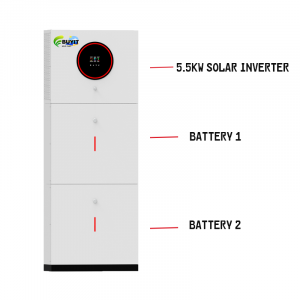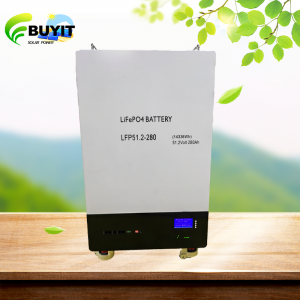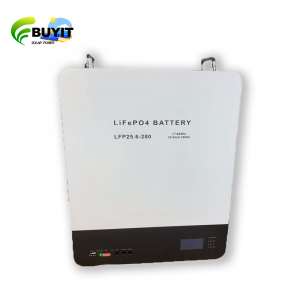
Energy storage丨Choosing batteries, 6 most important performance indicators!
Energy storage batteries are widely used in portable electronic devices, electric vehicles, energy storage systems and other fields. Performance parameters have an important impact on the performance and application range of batteries. The key performance parameters of energy storage batteries mainly include:

Energy density: refers to the energy storage capacity of a battery per unit volume or unit weight, usually measured in Wh/kg or Wh/L. Batteries with high energy density can provide longer driving range or usage time.

Specific capacity: refers to the energy storage capacity of a battery per unit weight, usually in Ah/kg. Batteries with high specific capacity can provide longer use time.

Cycle life: refers to how many times a battery can undergo charge and discharge cycles, usually expressed as the number of cycles. The longer the cycle life, the longer the battery life.

Safety: refers to the fact that the battery will not leak, short-circuit, explode, or have other safety issues during use. Safety is an important guarantee for battery applications.
Charging speed: refers to the speed at which the battery is charged, usually expressed as a C value. Fast charging can improve the efficiency and convenience of battery use.
Temperature characteristics: refers to the performance of the battery at different temperatures, including discharge capacity, cycle life, internal resistance, etc. Temperature characteristics have an important impact on the use environment and application range of the battery.
What is the energy density of energy storage batteries?
The energy density of energy storage batteries refers to the energy stored per unit volume or unit mass, usually expressed as energy density per unit volume, in units of Wh/L or Wh/kg. High energy density means that energy storage batteries can store more energy in a relatively small volume or mass.

Generally speaking, different energy storage methods have different energy densities. Nuclear energy has the highest energy density and has huge energy storage potential.

2. fossil fuels: Fossil fuels, such as oil, natural gas and coal, are widely used and have relatively high energy density.

3. hydrogen storage, which has a high energy density, especially in the case of liquid hydrogen;

4.compressed air energy storage (CAES);

5. fuel cell;

6. Lithium-ion batteries are one of the most commonly used energy storage methods and have a high energy density.

7. energy density is supercapacitor energy storage, which has the characteristics of fast charging and discharging and long life, and is widely used in certain specific applications.

What is the power density of energy storage batteries?
The power density of energy storage batteries refers to the energy released or absorbed by the energy storage battery per unit time, usually expressed as power density per unit mass, in units of W/kg.

High power density means that the energy storage battery can release or absorb more energy in a shorter time.
Among common energy storage batteries, supercapacitors generally have the highest power density, which can reach 5-10kw/kg.
Lithium-ion batteries usually have a higher power density, which can reach 150-300W/kg; nickel-metal hydride batteries usually have a power density of 80-120W/kg; lead-acid batteries have a relatively low power density, usually 20-50W/kg.
What is the charging and discharging efficiency of energy storage batteries?
The charging and discharging efficiency of energy storage batteries refers to the energy conversion efficiency of the battery during the charging and discharging process. It indicates the ratio between the energy that the battery can store when it is charged and the energy that it can release when it is discharged.

Charging efficiency refers to the ratio between the energy input and the energy stored in the battery during charging. Discharging efficiency refers to the ratio between the energy released and the energy stored in the battery during discharging. The charging and discharging efficiency can be expressed by the following formula:
Charging efficiency = (output energy / input energy) * 100%
Discharging efficiency = (output energy / input energy) * 100%
Charging and discharging efficiency is usually expressed as a percentage, and the higher the value, the higher the energy conversion efficiency of the battery.

What is the SOC of energy storage batteries?
The SOC of energy storage batteries refers to the state of charge (State of Charge), also known as the remaining power, which represents the ratio of the remaining capacity of the battery after a period of use or long-term storage to its fully charged capacity, usually expressed as a percentage. Its value range is 0~1. When SOC=0, it means that the battery is fully discharged, and when SOC=1, it means that the battery is fully charged.

Battery SOC cannot be measured directly, and can only be estimated through battery terminal voltage, charge and discharge current, internal resistance and other parameters. These parameters are also affected by many uncertain factors such as battery aging, ambient temperature changes and vehicle driving status.
What is the SOH of energy storage batteries?
The SOH (State of Health) of energy storage batteries is an indicator to measure the health of the battery, indicating the ratio between the current capacity of the battery and the initial capacity.

SOH reflects the actual life and reliability of the battery, usually expressed as a percentage, 100% means the battery is in good condition, and SOH will gradually decrease with the increase of usage time. When the SOH of the energy storage battery is lower than 80%, it means that the capacity of the battery has dropped significantly.

Accurate assessment of SOH is very important for battery maintenance and management, as it can help predict battery life and performance degradation, and determine whether repairs or battery replacement are needed.
If you want to know more information about batteries, pls add what’s app: 008613808405352




